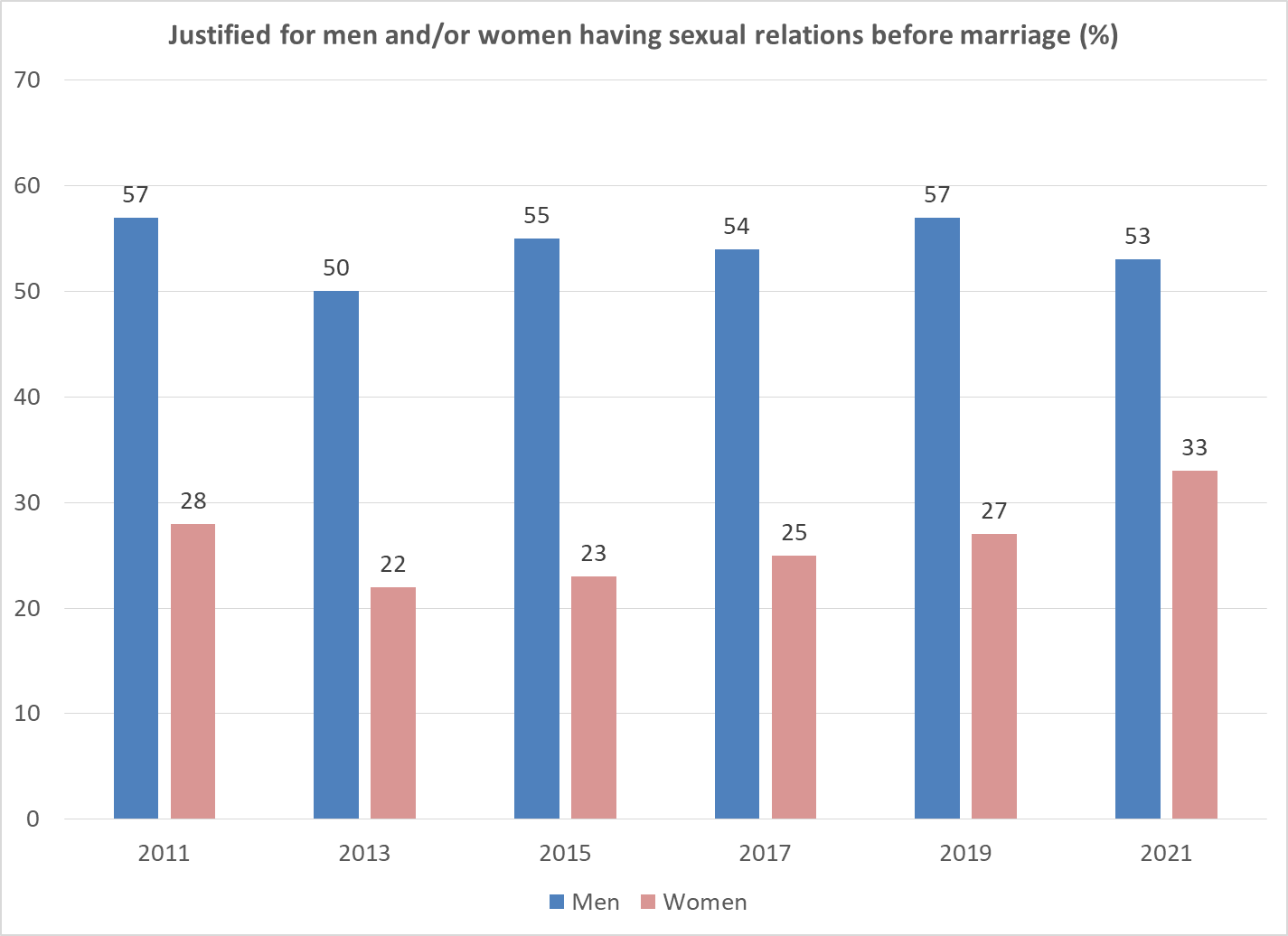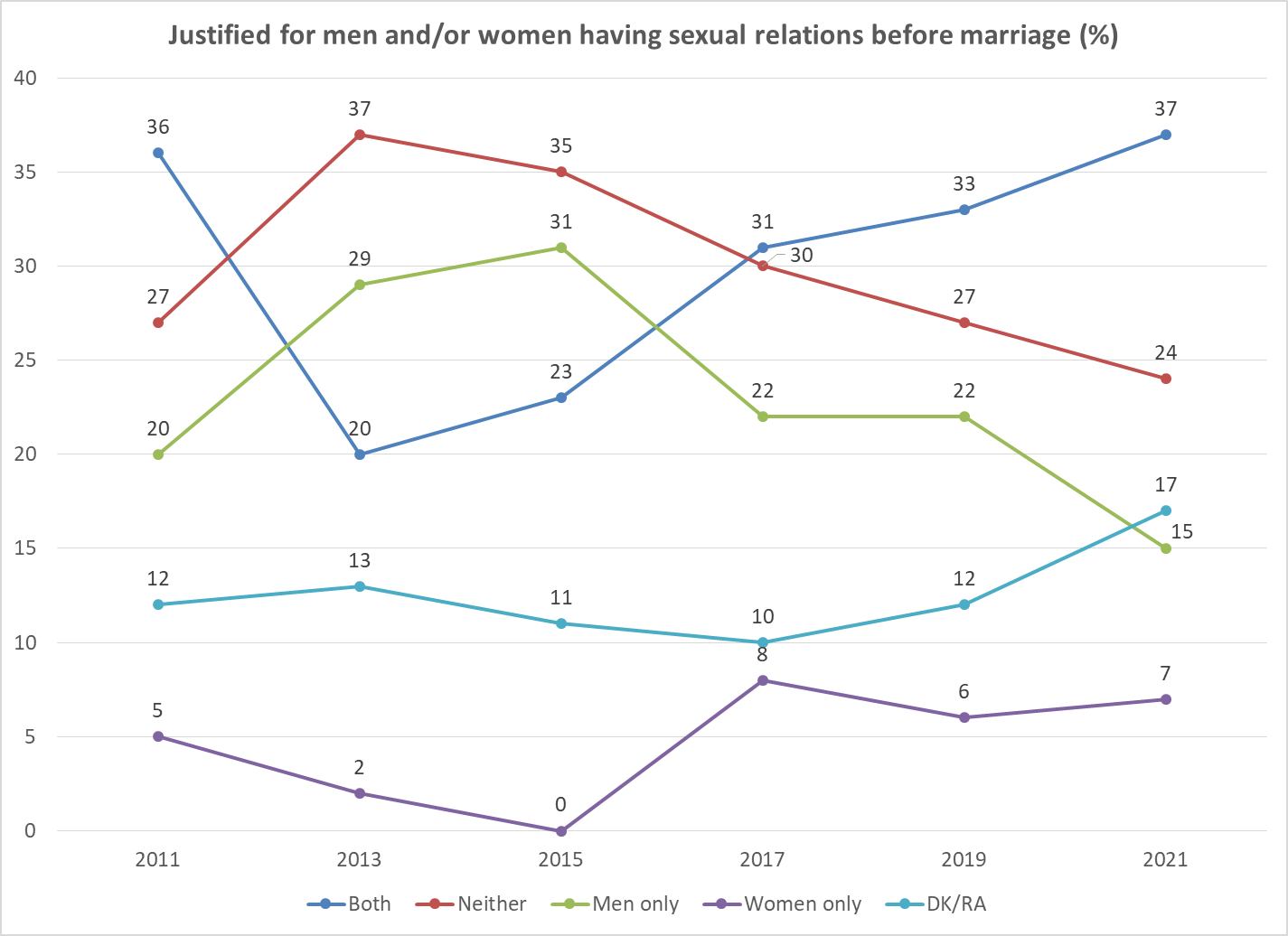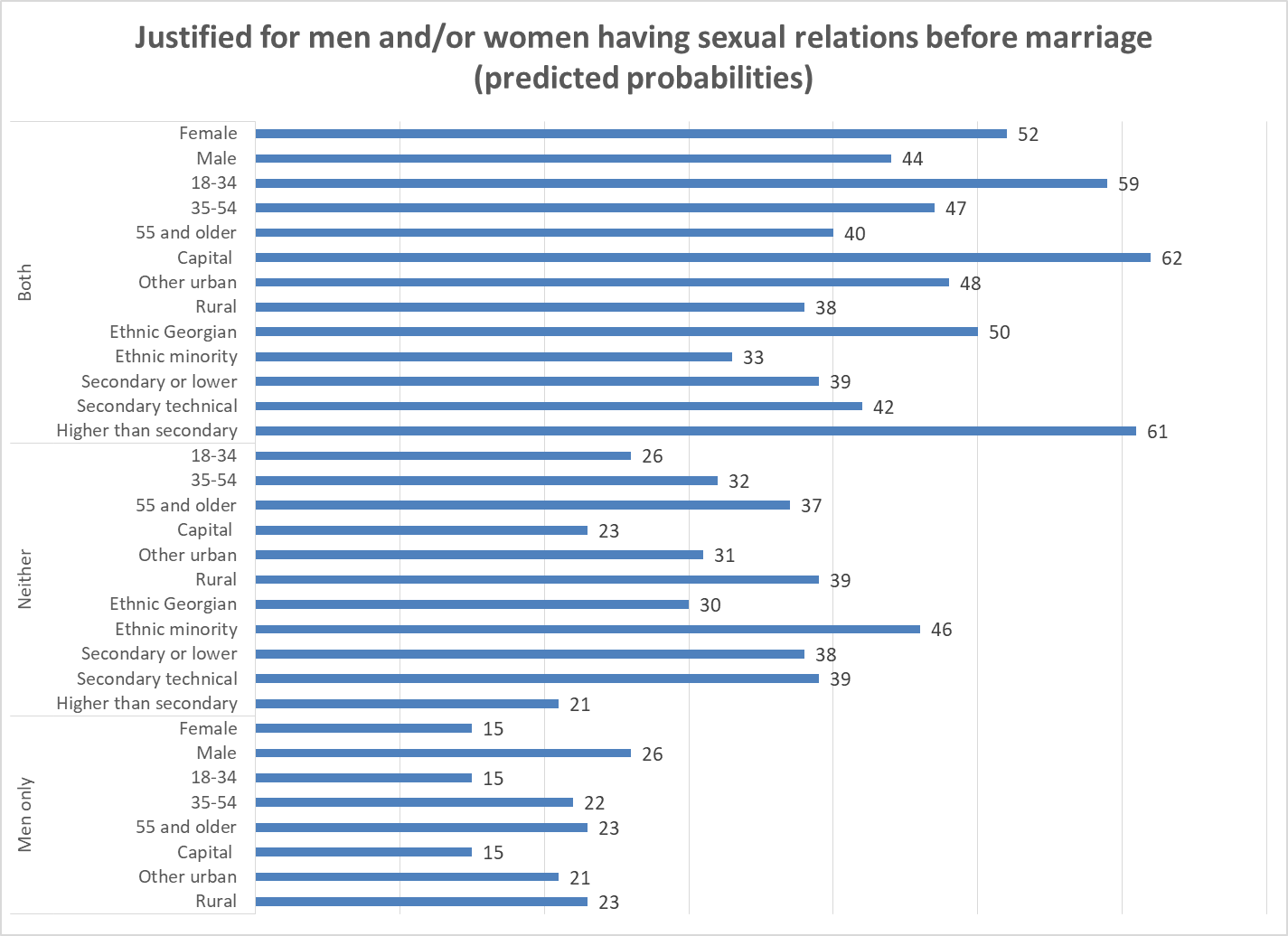
While Georgian society tends to find sex before marriage unacceptable for women, attitudes are slowly changing.
New data shows people increasingly think that both women and men having pre-marital sex is acceptable, at least some of the time. The results come from the Knowledge of and Attitudes towards the European Union in Georgia survey, funded by the Europe Foundation and carried out by CRRC Georgia.
According to the data, the public is significantly more likely to accept men having sex before marriage than to think it is acceptable for women to do the same.
However, the gap is narrowing.
In 2013, there was a 28 percentage point gap in acceptance of men and women having pre-marital sex. In 2021, 53% of people said it is sometimes or always justified for men to have sex before marriage and 33% for women, a gap of 20 percentage points.
This stems from an increase in the share of people saying that women having pre-marital sex is acceptable, with the share saying it is acceptable for men changing little over the years.

While attitudes remain conservative, the share of the public that thinks premarital sex is justified for both sexes has increased over the years. While 23% reported so in 2015, this figure went up to 37% by 2021.
There was an 11 percentage point decline between 2015 and 2021 in the share of the public that thinks premarital sex is never justified for either men or women. Similarly, between 2019 and 2021, there was a decline of seven percentage points in the share that felt it was justified for men only.

Further analyses show that attitudes varied between a number of groups.
Women were less likely to say that it is sometimes or always justified for only men to have pre-marital sex. In contrast, they were more likely to report that premarital sex is acceptable for both men and women.
People older than 35 were less likely to say that premarital sex was justified for both men and women, and more likely to report that it is acceptable for men only or neither sex.
People 55 and older were more likely to say that having sexual relations before marriage is never justified for either men or women and more likely to say it was justified for men only.
People living in Tbilisi were significantly more likely to report that it is acceptable for men and women, and less likely to report neither or men only. Similarly, people in other urban areas were more likely to report that premarital sex was acceptable than people in rural areas, controlling for other factors.
Ethnic minorities were significantly more likely to say that having sex before marriage was not acceptable for both men and women, and were less likely to report that it is sometimes or always justified.
People without a higher education were less likely to report premarital sex was acceptable for both men and women.

While Georgian society remains conservative in regards to premarital sex for women and more liberal in regards to men, attitudes are changing, and more people are becoming accepting of women having premarital sex.
Note: The analysis uses multinomial logistic regression, where the dependent variable is whether men/women having sexual relationship before marriage is acceptable. The variables’ categories include justified for both, justified for neither, and justified for men only. The independent variables are gender, age group, ethnicity, religious faith, settlement type, and the level of education. The data used in the blog is available here.








